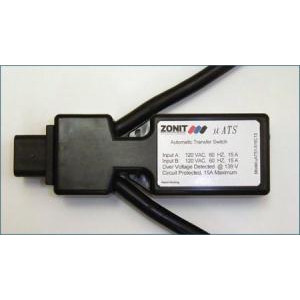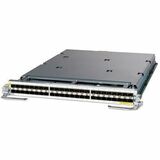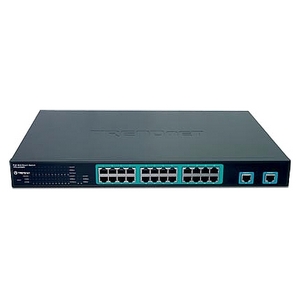Cisco ASR 9000 Series 48-Port Dual-Rate 10GE/1GE Line Card - 10 Gigabit Ethernet - 10GBase-X - 3 Layer Supported - Optical Fiber - Plug-in A9K-48X10GE-1G-TR
A9K-48X10GE-1G-TR | Cisco®
New Listing!
Part Number: A9K-48X10GE-1G-TR
Condition: New
In Stock:
Manufacturer Drop Ship
Real time availability 
Product Specifications
Cisco ASR 9000 Series 48-Port Dual-Rate 10GE/1GE Line Card - 10 Gigabit Ethernet - 10GBase-X - 3 Layer Supported - Optical Fiber - Plug-in A9K-48X10GE-1G-TR
ELO ASR 9000 48PORT 10GE AND Component - 1GE DUAL RATE TR LC
Manufacturer Part Number: A9K-48X10GE-1G-TR
MANUFACTURER NAME: Cisco
MANUFACTURER PART NUMBER: A9K-48X10GE-1G-TR
UPC EAN CODE:
LANGUAGE: EN
MARKET:US
| General Information: | |
The Cisco® ASR 9000 Series 24-port and 48-port dual-rate 10 Gigabit and 1 Gigabit Ethernet line card deliver industry-leading high density and high 10 Gigabit/1 Gigabit Ethernet performance to any slot of a Cisco ASR 9000 Series Aggregation Services Router. These high-capacity line cards are designed to remove bandwidth bottlenecks in the network that are caused by a large increase in video-on-demand (VoD), IPTV, point-to-point video, Internet video, and cloud services traffic, all with an incredibly low power profile. Fully populating an ASR 9922 chassis with the 48-port line card delivers 960 ports of 10 Gigabit Ethernet or 960 ports of 1 Gigabit Ethernet in a single chassis. Such configurations are ideal for networks in which density, performance, and low-latency operations are critical. The 24-port and the 48-port line cards are designed for throughput of 200G and 400G, respectively, but can operate in oversubscription mode up to 240G for the 24-port card and 480G for the 48-port card. There will be a graceful redistribution of packets across all ports in case of oversubscription. All the ports on the line card can be configured to be all in 10G or all in 1G mode. The line card also offers the flexibility to support certain mixed 1G and 10G configurations. The physical interfaces on these line cards support both Small Form-Factor Pluggable (SFP) and Enhanced SFP (SFP+) optics for long- and short-haul applications, enabling migration and support for numerous deployment scenarios requiring different media types and flexible interface modes. With these capabilities, the ASR 9000 Series line cards (Figure 1 and Figure 2) and routers provide the fundamental infrastructure for scalable Carrier Ethernet and IP/Multiprotocol Label Switching (IP/MPLS) networks, promoting profitable business, residential, and mobile services. Features and Benefits Both the ASR 9000 Series 24-port and 48-port dual-rate 10GE/1GE line cards are fully compatible with all ASR9000 modular chassis. Powered by the proven and the widely deployed Cisco IOS® XR Software OS, these line cards set a new standard for Layer 2 and Layer 3 10GE/1GE service density and scale to support large-scale aggregation, data center interconnect (DCI), and Satellite Network Virtualization (nV) System mode on the ASR 9000 Series Router. These versatile capabilities help operators qualify and stock one type of line card that can be deployed in any combination of Layer 2, Layer 3, DCI, or aggregation applications, thereby reducing capital expenditures (CapEx) and operating expenses (OpEx), as well as reducing the time required to develop and deploy new services. | |
| Manufacturer | Cisco Systems, Inc |
| Manufacturer Part Number | A9K48X10GE1GTR |
| Manufacturer Website Address | http://www.cisco.com |
| Brand Name | Cisco |
| Product Series | 9000 |
| Product Name | ASR 9000 Series 48-Port Dual-Rate 10GE/1GE Line Card |
| Product Type | Ethernet Switch |
| Interfaces/Ports: | |
| Port/Expansion Slot Details | 48 x 10GBase-X - SFP/SFP+ Expansion Ports |
| Media & Performance: | |
| Media Type Supported | Optical Fiber |
| Ethernet Technology | 10 Gigabit Ethernet |
| Network Technology | 10GBase-X |
| Maximum Data Transfer Rate | 1.25 GB/s |
| I/O Expansions: | |
| Expansion Slot Type | SFP
SFP+ |
| Number of SFP+ Slots | 48 |
| Network & Communication: | |
| Layer Supported | 3 |
| Networking Standards | IEEE 802.3x
IEEE 802.3ah IEEE 802.1ag IEEE 802.3ba |
| Physical Characteristics: | |
| Form Factor | Plug-in |
| Height | 14.5" |
| Width | 1.6" |
| Depth | 22" |
| Weight (Approximate) | 20.06 lb |
Questions and Answers
Questions and Answers | Ask CompSource |
Shipping / Returns
Shipping
Ground =
FREE
(Delivery within 2-7 business days)
Two Day Air = $25.00
(Delivery within 2 business days)
Standard One Day = $35.00
(Delivery within next business day)
Priority = $45.00
(Delivery within next business morning)
U.S Mail Priority (AA,AE,AP only) = $30.00
FedEx International Economy (Canada only) = $85.00
This item is currently available direct from the manufacturer. Normal fulfillment is 7-21 business days, but can vary depending on the item. Refurbished items can take longer depending on availability of the product. Once purchased, you will be on a waiting list. Automated tracking may not be updated on our site for either of these scenarios, please contact a representatives for more information regarding a particular product.
Shipping dates are best estimates based on product location and may vary with holidays.
If product requires trucking, additional fees may apply.
Saturday shipping is possible, Please contact sales for more information
* Some destinations are subject to Applicable State/Duty Taxes
Returns
CompSource realizes that every product may have different return guidelines. Please see the policy below regarding this item.
Please Note: Due to Cisco's Policy this product is not available for return or exchange and must be handled with Cisco Direct.
For support on this product, please contact Cisco. 800-553-6387 www.cisco.com
Cisco Company's Information
Click Cisco for all products
Local #: (408)526-4000
Toll Free #: 800-553-6387
Tech Support #: 800-553-2447
Site: www.cisco.com
Product Reviews
Overall Rating | Write a Review
|
|
Best Sellers
More Best Sellers
Recently Viewed
About Cisco
Cisco's approach to quality can be condensed down to one phrase: "ensuring our customer success". The information contained in this section will help you to gain a better understanding of Cisco's Business Management System, which allows us to accomplish that success. Cisco's Business Management System is made up of two parts; the Quality Management System and the Environmental Management System.
Cisco Fun Facts
Cisco Systems, Inc. is an American multinational technology conglomerate headquartered in San Jose, California, in the center of Silicon Valley, that develops, manufactures and sells networking hardware, telecommunications equipment and other high-technology services and products. Through its numerous acquired subsidiaries, such as OpenDNS, WebEx, Jabber and Jasper, Cisco specializes into specific tech markets, such as Internet of Things (IoT), domain security and energy management.
Cisco is the largest networking company in the world. The stock was added to the Dow Jones Industrial Average on June 8, 2009, and is also included in the S&P 500 Index, the Russell 1000 Index, NASDAQ-100 Index and the Russell 1000 Growth Stock Index.
Cisco Systems was founded in December 1984 by Leonard Bosack and Sandy Lerner, two Stanford University computer scientists, who pioneered the concept of a local area network (LAN) being used to connect geographically disparate computers over a multiprotocol router system. By the time the company went public in 1990, when it was listed on the NASDAQ, Cisco had a market capitalization of $224 million. Cisco was the most valuable company in the world by 2000, with a more than $500 billion market capitalization
Here are some great product categories from Cisco;
Learn more about Switches & Bridges
Network Switch Buying Guide
Connect Multiple Devices to a Network and Route Data to Designated Devices
What is a network switch and what does it do?
A network switch connects devices to a local area network (LAN) and allows the devices to communicate over the network. For example, you can connect computers, printers and servers to the same network switch and route data between them. Unlike an Ethernet hub, which transmits the same data through every output, a network switch sends data only to the devices designated to receive it. This improves the efficiency and potential throughput of the network.

Are there different types of network switches?
There are two main types of network switches, unmanaged and managed. The essential difference is the capability to configure the operation of a managed switch to customize and optimize network traffic for specific applications.
Unmanaged Switches
- Offer plug-and-play functionality
- Switch operation cannot be modified
- CompSource offers desktop and rack-mount unmanaged switches
Managed Switches
- Provide the ability to manage, prioritize and monitor LAN traffic
- Offer one or more ways to modify switch operation
- CompSource offers smart managed switches that feature an RJ45 console port and command line interface (CLI)
Where do you place network switches?
Network switches are usually placed on a desk or table, mounted on a wall, or mounted in a rack. CompSource offers unmanaged desktop switches (with metal or plastic housing) and both unmanaged and managed rack-mount switches with metal housing and a built-in PDU (Gigabit Ethernet Switch PDU Combos).

What is a Gigabit Ethernet Switch PDU Combo?
CompSource offers an exclusive line of unmanaged and managed Gigabit Ethernet switches that have Power over Ethernet (PoE).

Factors to Consider
Does your application require a managed switch?
If your application involves controlling network traffic, you will need the features of a managed switch. The following are some examples of tasks that require a managed switch:
- Controlling access between departments within your LAN
- Running many bandwidth-intensive applications simultaneously
- Giving important data greater priority in your LAN
- Improving the performance of a busy network
- Implementing VoIP, wireless LANs or other advanced services
How many devices do you need to connect to your network?
Make sure you select a switch with enough Gigabit (10/100/1000 Mbps) Ethernet ports for the devices you want to connect to your network. If you think you'll add more devices in the future, choose a switch that will give your network room to grow.

Do you need to connect multiple network switches?
If you plan to connect multiple network switches, look for models with SFP uplink ports (also known as Mini-GBIC ports). SFP uplink ports are connection points for SFP (small form-factor pluggable) modules that allow the switch to uplink to other switches using optical fiber cabling.
Power over Ethernet (PoE) uses existing network cables to power connected devices, such as VoIP phones, wireless access points and surveillance cameras. If you need this functionality, look for a switch with Gigabit Ethernet ports that support PoE. Make sure the power per port (in watts) and the total power budget of the PoE ports meet the needs of your electronic devices.
CompSource will educate and help make this process enjoyable and easy.
Whether you're planning on using your network for basic home tasks or enterprise level security. You can tell our trained sales professionals your needs, and we'll make custom recommendations to suit your specifications and budget. Our reps have extensive knowledge and love to share. We educate, not sell, CompSource makes sure you buy what you need and not waste money on what you don't. As with every decision we never push, it's up to you when, and if you make a purchase.
CompSource has a great technical staff that can help with a solution for your exact needs.
Chat with us or give our professionals a quick phone call (800)-413-7361.
Unbelievable delivery time. Ordered on Wednesday and received on Thursday. Bravo CompSource!! mikeMore Reviews




























